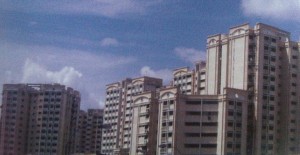The Singapore Guide | 2012-2024 All Rights Reserved The-Singapore-Guide.com serves as general information only. The materials herein are not intended to be nor do they constitute legal advice.
Buying & Renting Properties for Foreigners
I am a non-citizen foreigner. How can I go about to look for a property to rent in Singapore?
Housing Rental in Singapore for Foreigners and Expatriates
Housing of Foreign Talents (SHiFT)
This scheme was launched in 1997 by the Jurong Town Corporation (JTC). Known as “The Scheme for Housing of Foreign Talents” or SHiFT, the scheme aims to help foreign talents to rent HDB flats at lower costs. New or existing permanent residents, skilled work permit holders and employment pass holders are all open to apply for the scheme. The applicants, however, must fulfill the conditions of being at least 21 years of age, and must not own any private residential property in Singapore. The lease term is for an initial tenure of two years but may be renewed at market prevailing rates. To apply, you may submit your application via internet at http:www.jtc.gov.sg or you may make an enquiry via email at hdg@jtc.gov.sg or telephone contact: +65 6885 5315/ 6885 5316
There are no particular restrictions on private property rentals for foreigners.
Can foreigners buy property in Singapore?
Private Apartments and Executive Condominiums (EC)
Singapore Permanent Residents and Non-citizens or Foreigners can buy condominiums (after 10 years) and private apartments, provided that the private apartments units are in buildings that are at least six storeys high and are approved condominium units. However, foreigners buying private property in Singapore have to be purchase them for own occupation and not for investment or renting purposes. If Singapore PRs or non-citizens would like to apply for other types of properties, they will need to seek approval from The Controller of Residential Property Land Dealings (Approval) Unit located at : 8 Shenton Way #27-02 Temasek Tower, Singapore 068811, Tel: +65 6323 9829.
Looking to buy a property in Singapore? Or buying a property to rent in Singapore? Email: connie@the-singapore-guide.com for more information.
Useful Links:
- Buying a property in Singapore for Permanent Residents
- Engaging interior design & home renovation services in Singapore
The Cost of Housing in Singapore
Housing in Singapore has been a challenging issue for Singaporeans and even for some of the foreigners and expats. The demand for housing is outgrowing its supply in recent years as Singapore’s population increases with the influx of foreign workers as well as permanent residents that is deemed necessary by the Singapore Government to sustain the country’s economy as well as boosting birth rates and marriages that have both dipped substantially in the last few years among Singaporeans.
Like cars, housing prices have been on the rise due to pent up demand owing to many factors. Many foreigners such as expatriates and permanent residents who have the means to afford the rising housing prices hence are at upper hand to purchase properties in Singapore. Though the Residential Property Act in Singapore has certain housing rules and regulations imposed on foreigners for purchasing properties in Singapore, the classes of housing allowed to be bought by foreigners, whether restricted or non-restricted, have an impact on the housing supply Singaporeans too yearn to own but find increasingly hard to do so. Due to the scarcity of land, land prices are also driven up as strategic locations are catered for private properties development that are in turn sold to those whose income are higher than the national average as well as permanent residents who mostly attained such status through the PR schemes that generally qualify them base on financial merits, if not talent that would have yielded them good income during their employment in Singapore.
Singaporeans are not replacing themselves fast enough as more couples are not producing enough babies and more Singaporeans who prefer to remain as singles or opting for late marriages. As a result, the government flats, i.e. HDB flats have also become a problem for Singaporeans as the public housing are fundamentally built to ensure all Singaporeans can afford to own homes and have places to stay, as such, conditions such as having to stay as a family nucleus, or with a married spouse, with another sibling, or parent, are imposed. There are also housing grants that are schemed to relieve housing loans for those who have a third generation residing with them, or those who opt to stay within a certain close proximity with their parents or in-laws.
HDB (Housing Development Board) Flats – Public Housing
86 per cent of Singapore’s population is living in government housing, i.e. HDB flat dwellings. Out of these HDB residents, about 90% owns the flats while the rest rent the units. A typical HDB housing estate in Singapore is generally self-sufficient and is surrounded by its own nearby amenities such as neighborhood shopping centres, schools, food centres, hawker centres, wet markets, children’s playgrounds, recreational and sports facilities.
HDB flats are classified into three-room, four-room, five-room as well as executive flats more commonly known as “EC” (Executive Condominiums). All types of flats are with at least one kitchen and one bathroom.


